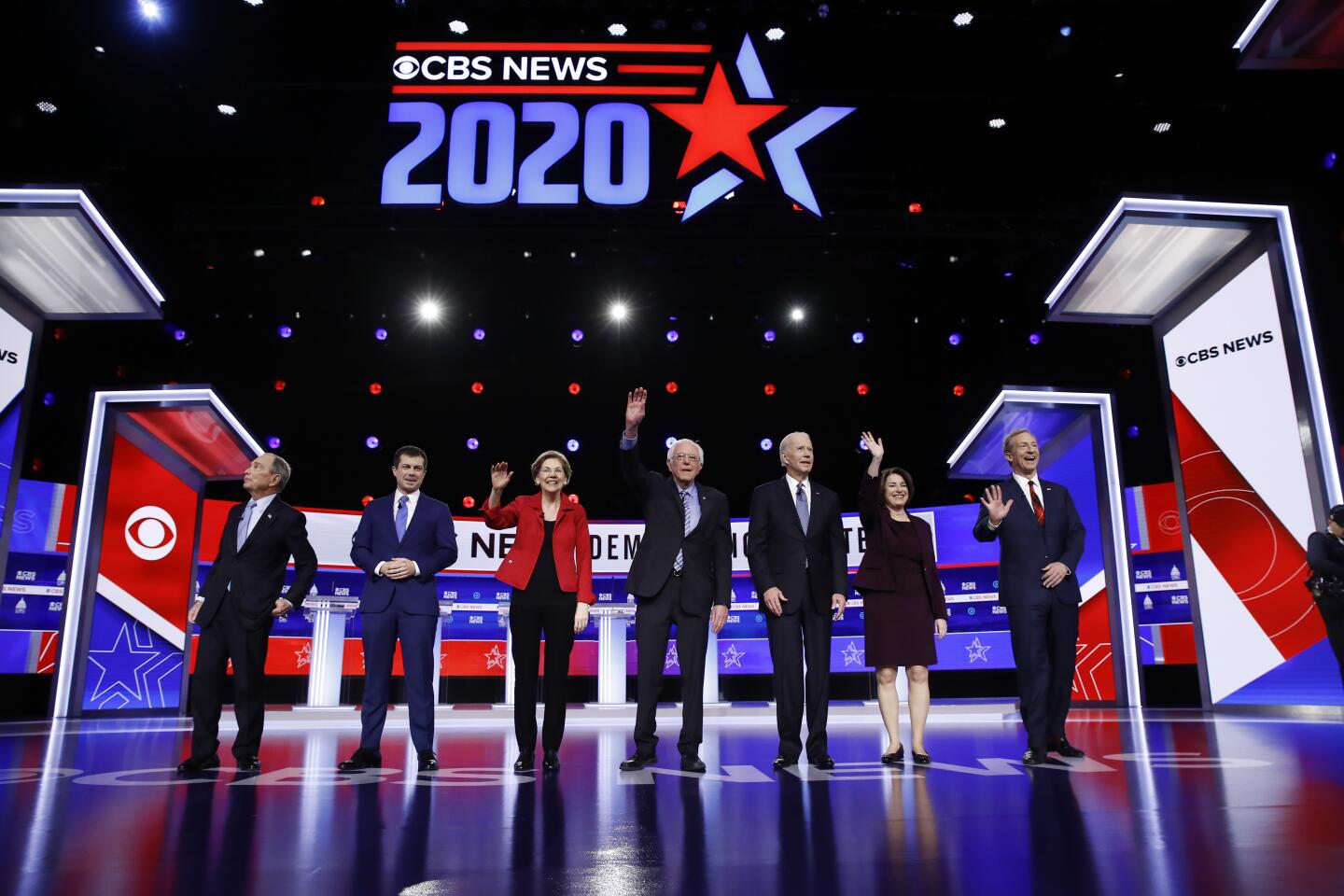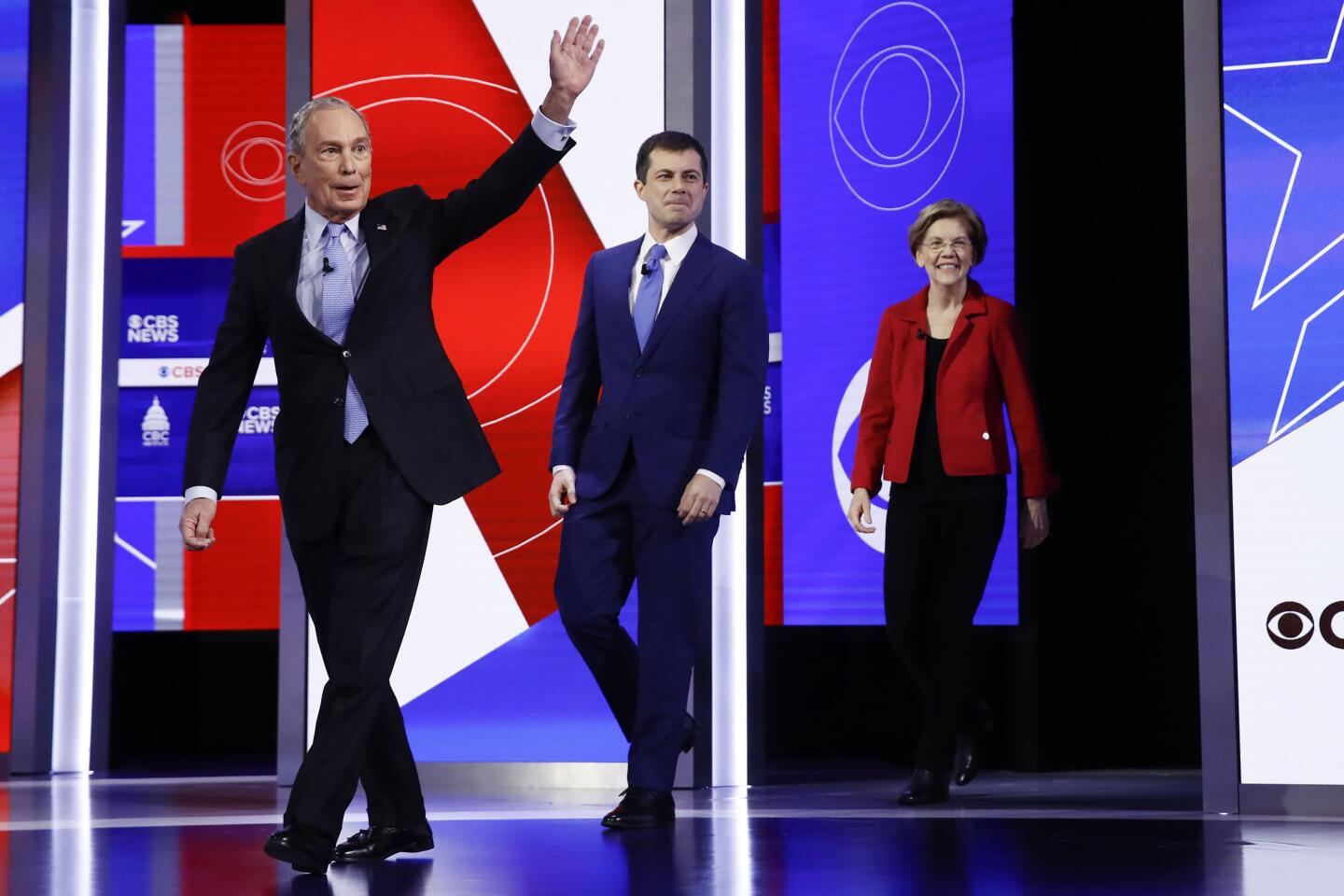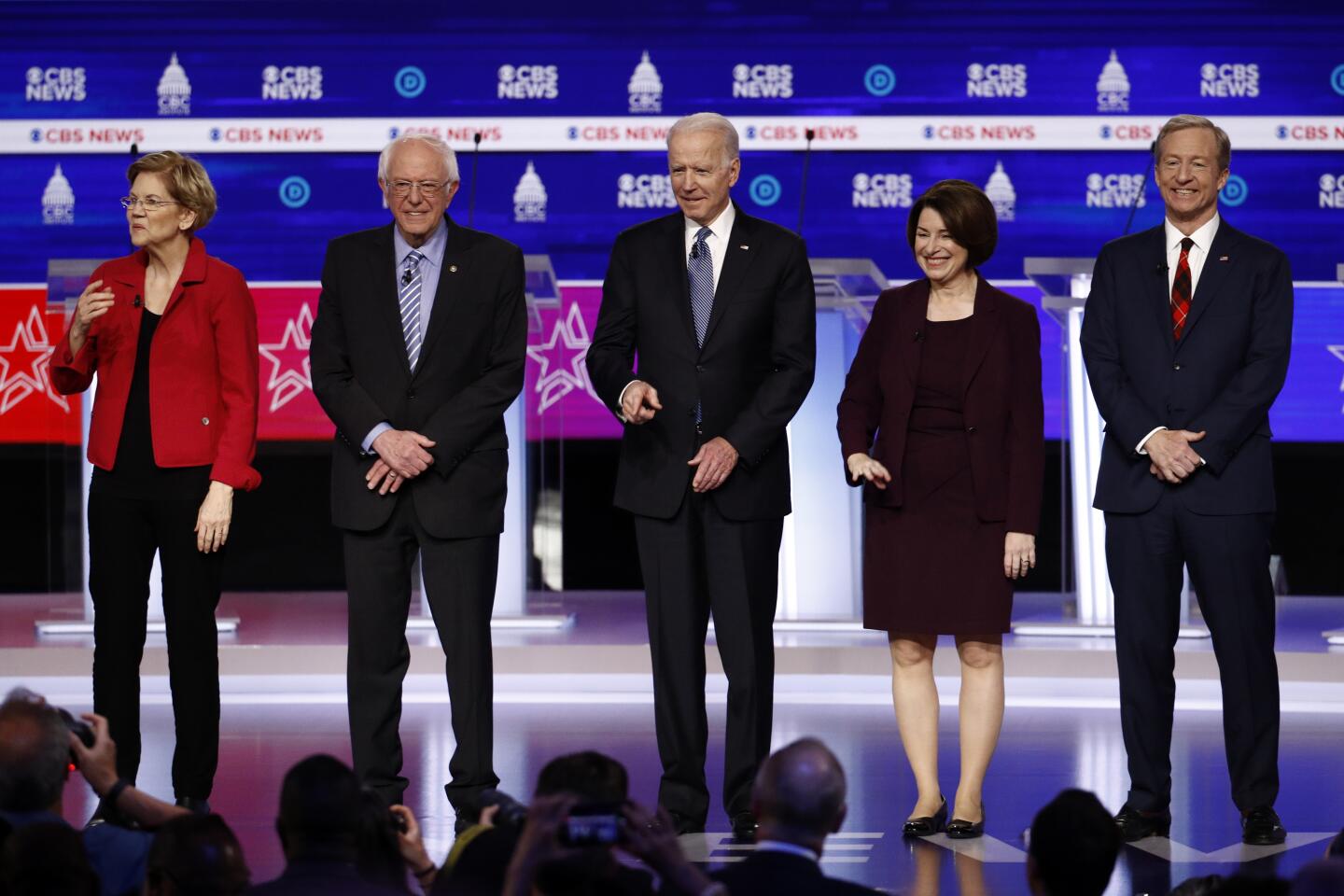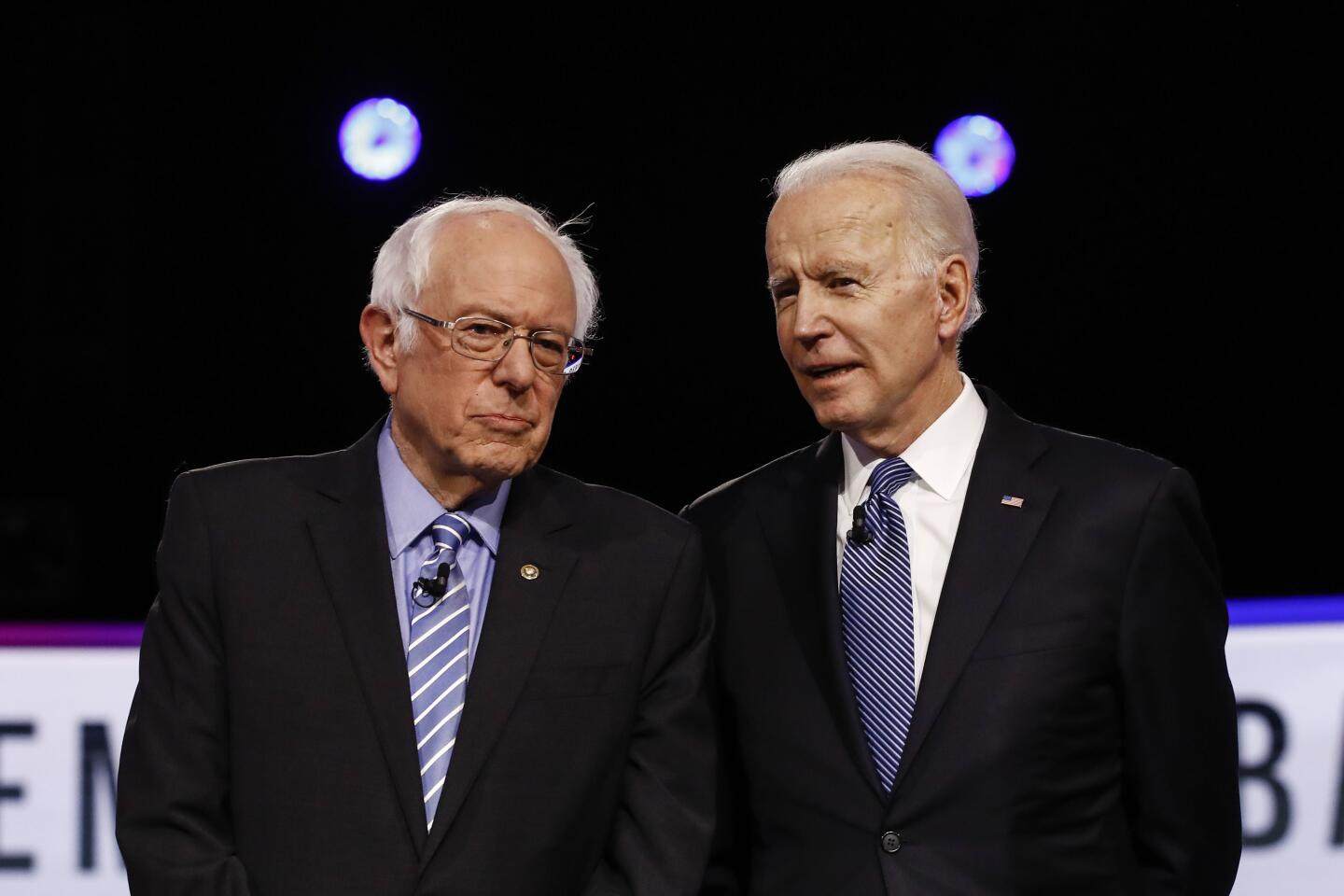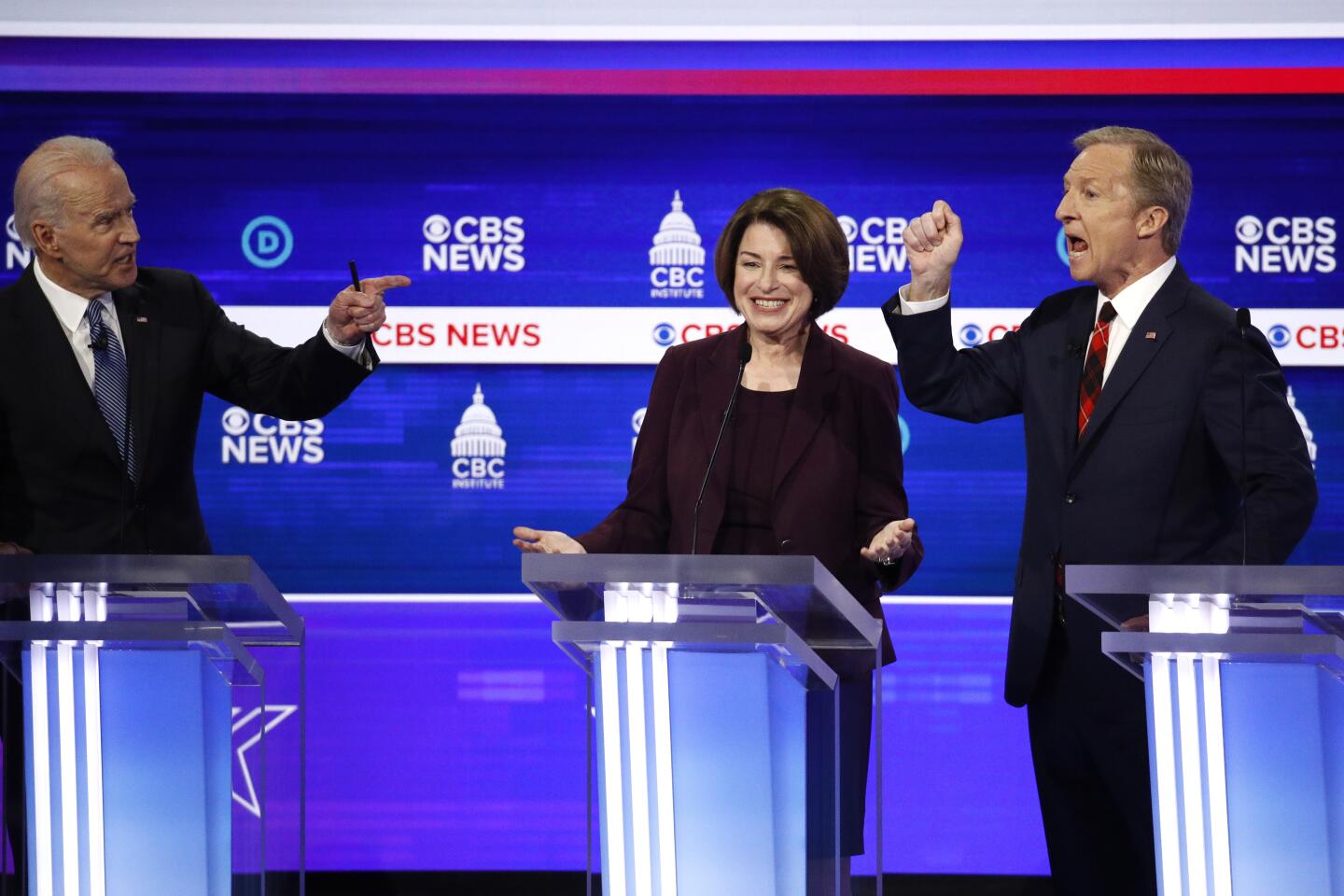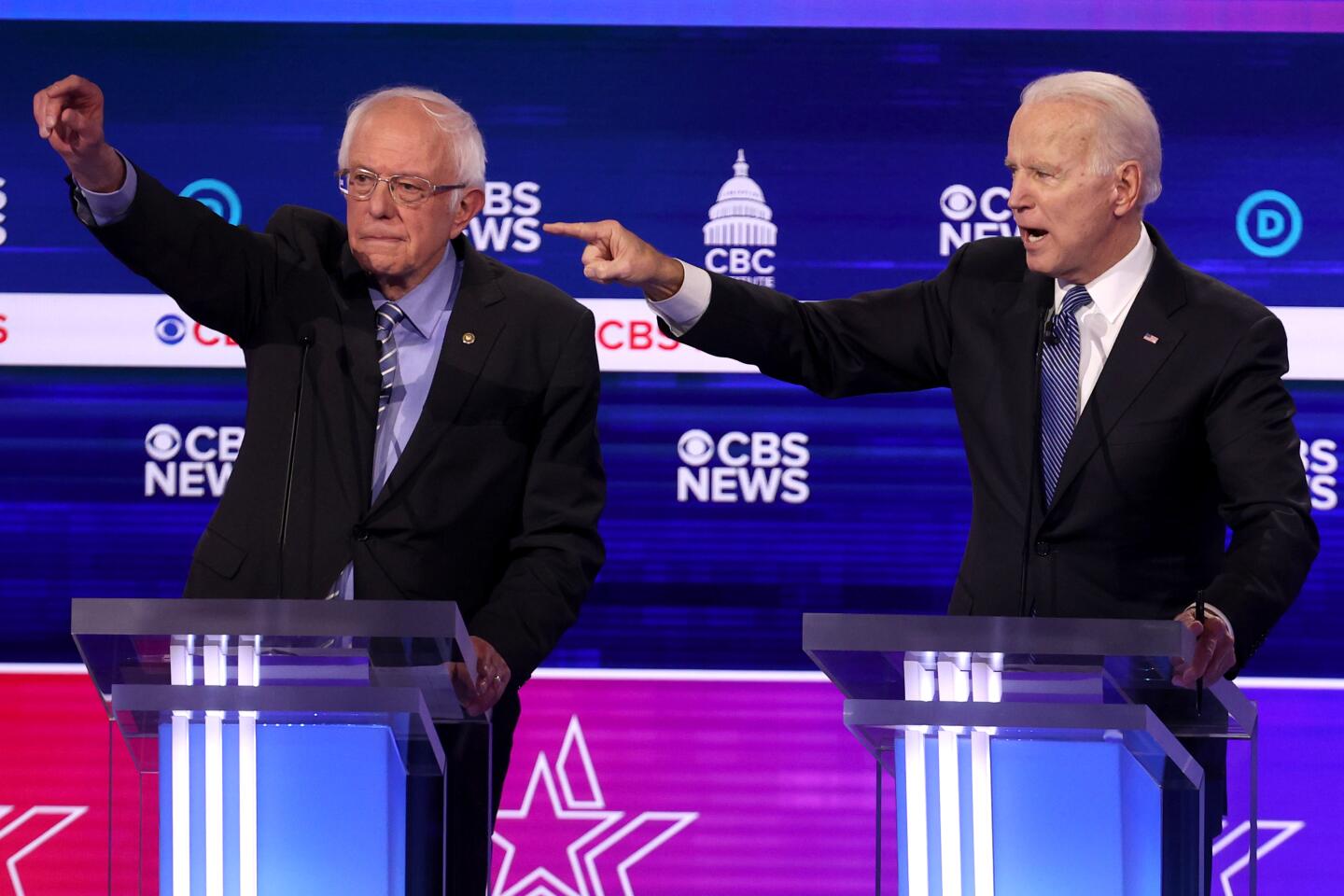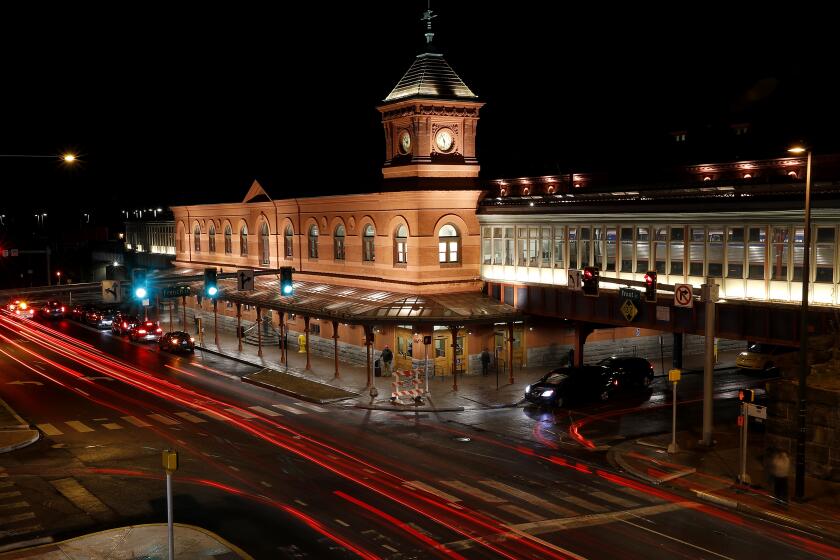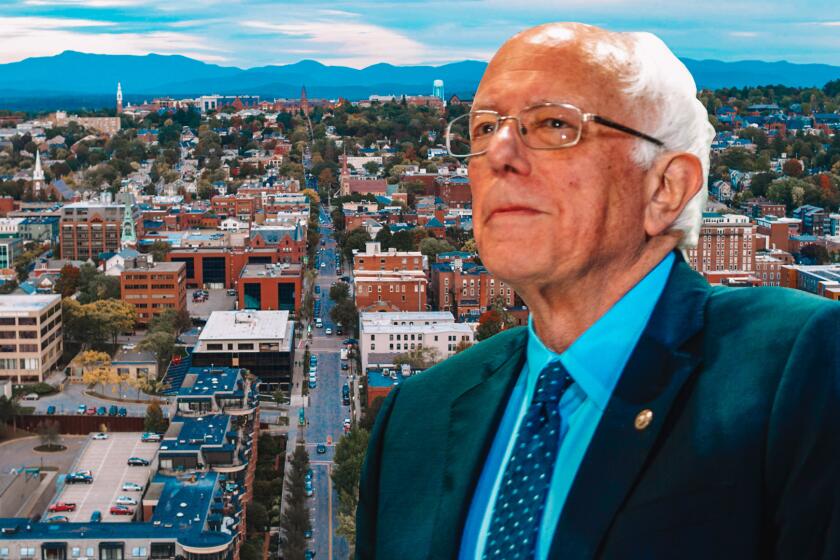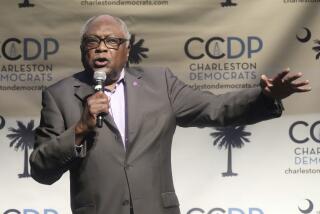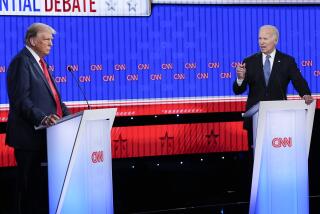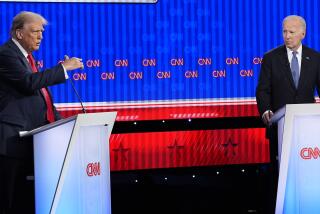5 takeaways from the South Carolina Democratic debate

- Share via
Well, that was spunky!
South Carolina has a history of rapscallion politicians and rowdy debates, and Tuesday night’s two-hour throw down in Charleston was no exception.
For those not named Michael R. Bloomberg or Bernie Sanders, the debate may have been the last best chance for candidates to assert themselves before Saturday’s Democratic primary, which could claim several casualties ahead of the balloting blitz on March 3, Super Tuesday.
Here are five takeaways:
Sanders gets swarmed
It took two Sanders victories and a virtual tie for his rivals to admit it, but on Tuesday night there was no doubting it: The Vermont senator is the front-runner for the Democratic nomination.
With Sanders threatening to run away with the contest, others did all they could to trip him up.
Minnesota Sen. Amy Klobuchar mocked his lofty promises: “The math does not add up.”
Sanders and Bloomberg came under attack and candidates talked about coronavirus, sexism, and their personal mottoes in the last Democratic presidential debate before South Carolina votes Saturday and California and 13 other states vote March 3. Catch up on what happened here.
Pete Buttigieg took on Sanders’ support for the Senate filibuster, in which bills need 60 votes instead of a simple majority to pass. “How are we going to deliver a revolution if you won’t even support a rule change?” the former South Bend, Ind., mayor taunted.
Joe Biden all but accused Sanders of having blood on his hands for past votes in alignment with the National Rifle Assn. (The former vice president mistakenly said guns have killed 150 million people since 2007, when Sanders voted to exempt gun manufacturers from liability.)
Sanders seemed peeved at times, barely suppressing an eye roll when his onetime progressive ally Elizabeth Warren argued she would be a more effective president.
But he largely parried the attacks by falling back on staples such as “Medicare for all” and jabbed back at Biden by saying he, too, cast plenty of “bad” votes during his decades as Delaware’s senator.
In fact, it was the audience that got deepest under Sanders’ skin, when they booed his answer explaining praise for Cuba’s literacy programs.
“Really?” he shouted over the jeers. “Really?”
Bloomberg does better
Bloomberg’s presidential campaign overflows with superlatives: staggering sums of money, a blizzard of advertising, an army of staff.
But his widely panned debate performance last week in Las Vegas invited less grandiose descriptions, which left New York City’s former mayor nowhere to go but up.
He cracked a lame and obviously rehearsed joke, professing surprise others took the stage after he wiped the floor with them in Nevada. He was haughty, brushing aside a persistent Warren and griping about being cut off by moderators.
He almost handed his opponents a bludgeon when he spoke of the millions he poured into the 2018 midterm elections, saying, “All of the new Democrats that came in and put Nancy Pelosi in charge and gave the Congress the ability to control this president, I bough- ... I got them.”
But for the most part Bloomberg cleared the rather low bar set in Nevada — it probably helped that Sanders took so much flak — and delivered one of the crispest arguments he’s made for his candidacy. “I have the experience,” he said. “I have the resources and I have the record.”
Joe Biden’s hometown of Wilmington is known for its small size and relationship-based politics. But just as in national politics, backlash has been brewing against the status quo.
Biden turns it up to 11
He finished fourth in Iowa, fifth in New Hampshire and a distant second in Nevada. For someone whose candidacy is predicated almost wholly on the notion of electability — that is, the supposed ability to win elections — that’s not a lot of winning.
Which explains why South Carolina’s primary is the be-all that could be the end-all for Biden if he doesn’t prevail Saturday.
The urgency came across as he delivered arguably his strongest debate performance to date.
In rat-a-tat fashion he strafed Sanders over his relatively meager record of congressional accomplishment and skewered hedge-fund billionaire Tom Steyer, who is making his own all-or-nothing stand in South Carolina, by citing his investment in private prisons that abused minorities.
Biden wagged a finger at the camera — “I’m coming for you,” he told the NRA. And repeatedly refused to be shushed when his time ran out — “You spoke overtime and I’m going to talk” — a contrast with past debates where he meekly submitted to the keeper of the clock.
“Why am I stopping?” he said at one point. “No one else stops.”
The former vice president’s solid debate performance ahead of Nevada’s caucuses probably helped. His showing Tuesday night probably didn’t hurt.
Either way, when asked if he would quit the race if he failed to win Saturday, Biden wouldn’t bite.
“I will win South Carolina,” he declared. Period.
Burlington shaped Sanders as Sanders shaped Burlington, so much so that it’s hard to consider one without the other.
Warren vs. Bloomberg, Round 2
Massachusetts’ senator really, really likes tearing into Bloomberg.
She reprised her Las Vegas attack by citing the treatment of women who worked for him, calling yet again for Bloomberg to issue a blanket release for those who signed secret settlements over allegedly boorish behavior.
Sharing her own story of being discriminated against as a pregnant teacher, Warren reduced the former New York City mayor to sputtering outrage. “At least I didn’t have a boss who said to me, ‘Kill it,’ the way that Mayor Bloomberg is alleged to have said to one of his pregnant employees,” she said.
He categorically denied ever making the statement.
But the strategy lost a bit of its oomph, lacking the surprise factor and dampened by boos from the Bloomberg-friendly crowd.
“With this senator,” he said dismissively of Warren, “enough is never enough.”
Paeans to the Palmetto State
When the candidates gathered for a Christmas season debate in Los Angeles, California-centric issues received virtually no mention. Nevada got similarly short shift.
On Tuesday night, there was no mistaking the setting as candidates invoked local landmarks and matters of particular South Carolina interest, such as criminal justice, the anti-civil rights history of its benighted leadership and the racial disparity in maternal mortality.
Criticizing Sanders’ record on guns, Biden brought up the 2015 mass shooting at Emanuel AME Church. Touting his work alongside President Obama, the former vice president cited the $500 million the administration poured into the local economy.
Steyer invoked the cruel legacy of slavery. Buttigieg spoke of black voter suppression. Klobuchar said she understood why African Americans were skeptical of political promises.
The focus wasn’t a matter of politesse, or candidates acting as gracious guests. Black voters make up more than 60% of Saturday’s anticipated primary electorate, a contrast with the more atomized body politic in California and Nevada.
That’s not to say one size fits every South Carolina Democrat. But the overarching importance of black voters does make it easier for candidates to pander — er, tailor — their messages to a crucial and readily identifiable audience.
More to Read
Get the L.A. Times Politics newsletter
Deeply reported insights into legislation, politics and policy from Sacramento, Washington and beyond. In your inbox twice per week.
You may occasionally receive promotional content from the Los Angeles Times.
